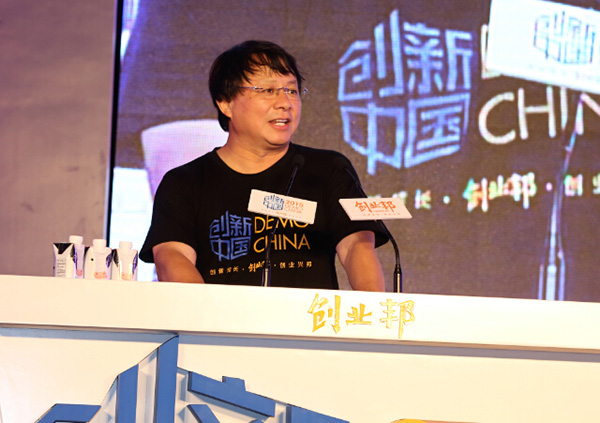Chinese entrepreneurs remain optimistic despite economic downfall
By He Yini (chinadaily.com.cn) Updated: 2015-08-31 14:43
 |
|
Xiong Xiaoge, vice-president of the US venture capital firm IDG, speaks during Demo China 2015, a two-day event that started August 27, 2015. [Photo provided to chinadaily.com.cn] |
Demo China 2015 saw its final day come to an end Friday in Hangzhou. Thousands of visitors flooded the event with their business plan hoping to meet investors who can help lift their idea off the ground. Demo China is a national innovators competition known for its match-making opportunities for Chinese investors and entrepreneurs.
Bruce Yang is among many young entrepreneurs who are eager to find themselves a generous investor. His company, Shenzhen Qingmayun Technology Co Ltd, aims to challenge Wechat (Tencent Holdings) with an open platform that connects telecom and social networking apps to cloud based technologies.
"There are quite a few developers out there doing similar things, but our company is by far the most competitive because we have unique resources in this field," said Yang. "I think we are very close to striking a deal with a suitable financial backer."
He declined to elaborate on what unique resources his company has got, but said the company has joined hands with China's three telecom operators.
"It's best time ever to let fly our dreams not just because the government is encouraging entrepreneurial activities but it's relatively easier to get money from investors as the stock market is undergoing a meltdown,"
Xiong Xiaoge, founding partner of IDG Ventures, says when the stock market is down investors look elsewhere to invest their money, and for entrepreneurs this means opportunity.
"The winter of stock market is the spring of investors," said Xiong. "We are looking to take a risk on start-ups that are competitive and innovative."
Back in 1999, Xiong and the IDG board took risks of their own when they invested in up-and-coming tech companies such as Baidu and Tencent holding. Baidu's 2014 annual revenue was $7.91 billion (according to ir.baidu.com) while Tencent brought in a whopping $12.9 billion in the 2014 fiscal year.
"We weren't quite sure when our investments would start profiting. We just went in the right direction, riding the wave of the Internet boom in China," said Xiong.
- 2015 China International Fair for Investment and Trade kicks off in Xiamen
- China's commodity imports robust in Jan-Aug period
- China stocks rebound 2.92%
- 2015 China box office already past 2014 total
- China foreign trade decline widens in August
- Interview: JP Morgan's senior executive bullish on China
- Innovation, development the focus for NZ mayors
- Lives of freelancers

















